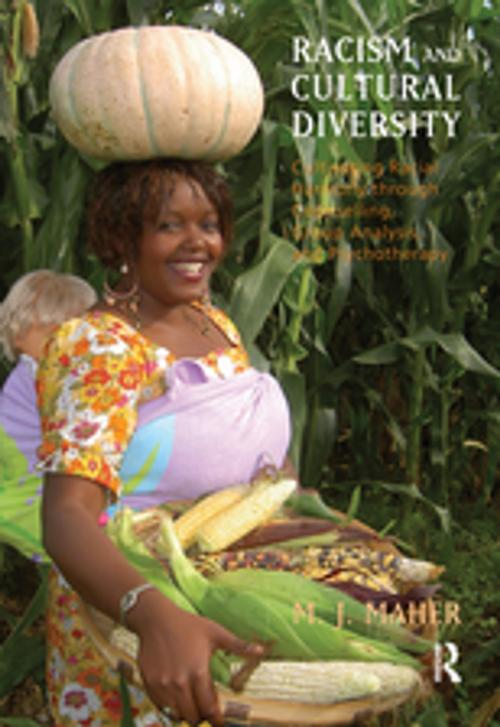Racism and Cultural Diversity
Cultivating Racial Harmony through Counselling, Group Analysis, and Psychotherapy
Nonfiction, Health & Well Being, Psychology, Mental Health| Author: | M.J. Maher | ISBN: | 9780429918384 |
| Publisher: | Taylor and Francis | Publication: | April 17, 2018 |
| Imprint: | Routledge | Language: | English |
| Author: | M.J. Maher |
| ISBN: | 9780429918384 |
| Publisher: | Taylor and Francis |
| Publication: | April 17, 2018 |
| Imprint: | Routledge |
| Language: | English |
The author writes for all those interested in the dynamics of racism, from professionals in counselling, group analysis and psychotherapy working in multiracial and multicultural societies to those exposed to racism who need help in dealing with the impact of their experiences. She also addresses the concept of victims becoming perpetrators if support is not given to contain the process. Herself a group analyst, the author experienced at first hand racial discrimination within the system, but rather than succumb has instead produced an enduring and proficient work that draws heavily on personal experience. Combining years of counselling skill with a natural compassion, she makes the subject of racism approachable, thus motivating all those wanting to explore the issues. For people whose experience of broken attachments crosses racial lines, this book is possibly the first to use Bowlby's Attachment Theory as a framework for understanding racism.
The author writes for all those interested in the dynamics of racism, from professionals in counselling, group analysis and psychotherapy working in multiracial and multicultural societies to those exposed to racism who need help in dealing with the impact of their experiences. She also addresses the concept of victims becoming perpetrators if support is not given to contain the process. Herself a group analyst, the author experienced at first hand racial discrimination within the system, but rather than succumb has instead produced an enduring and proficient work that draws heavily on personal experience. Combining years of counselling skill with a natural compassion, she makes the subject of racism approachable, thus motivating all those wanting to explore the issues. For people whose experience of broken attachments crosses racial lines, this book is possibly the first to use Bowlby's Attachment Theory as a framework for understanding racism.















